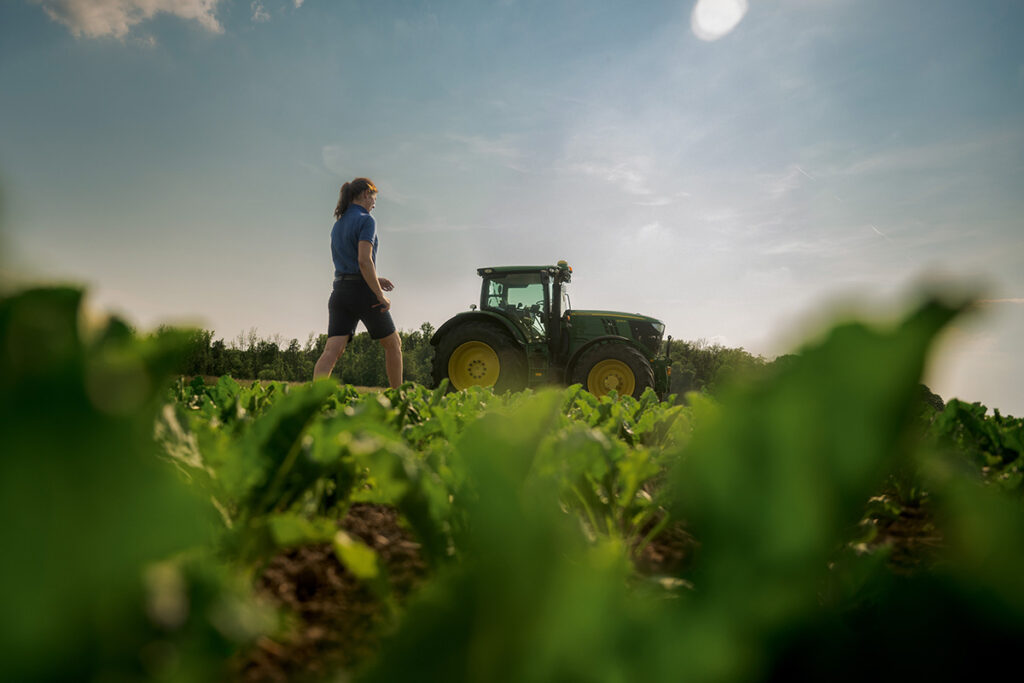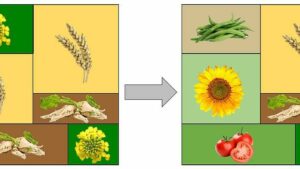In light of increasing restrictions on the use of pesticides in agriculture, breeding varieties that are tolerant to disease and pests is becoming increasingly important.
Plant breeding is a key factor in overcoming this challenge. While securing and increasing yields have already been key components of plant breeding for many decades, resistance breeding has now become an equally important focus. The objective is to permanently reduce the use of pesticides. One example of this work by KWS plant breeders is the development of sugarbeet varieties that are tolerant to Virus Yellows.
The plant disease can lead to yield losses for sugarbeet – an important link in crop rotation – of 30 to 50% on affected areas. It is triggered by three viruses, which can occur individually or as mixed infections. KWS has already been working proactively for many years, and with great dedication on sugarbeet varieties that are tolerant to Virus Yellows and also have the desired yield traits. In the medium term, high-performance varieties will be available – the longer-term goal of KWS is to combine Virus Yellows tolerance with, among others, CONVISO® SMART and CR+1 – innovative plant traits with which KWS has significantly advanced the cultivation of sugarbeet in Europe in recent years.
KWS Phytopathology – tests with one million aphids each season
In order to specifically develop effective genetics against Virus Yellows, it is essential for KWS to carry out its own test series with infected plants. For this, KWS Phytopathology supports the entire breeding process by producing more than one million virus-infected aphids each season – that is unique worldwide. Today, aphids with all three Viruses Yellows and additionally with all mixed forms are available for research at various locations in Europe (Germany, France and the UK). This research work involves infecting tens of thousands of plants in the field during the summer and in the greenhouse during the winter as part of large-scale trials.
KWS Monitoring – The World’s Largest Virus Yellows Trial Network
KWS established the world’s most extensive Virus Yellows monitoring program over the course of its research activities. After all, understanding how the virus occurs is key to advancing tolerance breeding. Large-scale monitoring is used in particular to identify a system and patterns in the spread of the viral disease and to incorporate these findings effectively into breeding work. The objective is to ultimately be able to offer farmers a variety selection adapted to their location and precise advice on varieties.
Seed Treatment
KWS is also conducting large and complex trials at five locations in Germany, France and the United Kingdom to find out what benefits seed treatment can bring in the future. The aim here is to also better understand the interaction between different factors. KWS is testing both chemical and biological (alternative) seed treatment agents and has already identified new substances that help protect sugarbeet plants from aphid and Virus Yellows infestations.
Minimizing the use of resources and hence also reducing the amount of pesticides are part of the KWS 2030 Sustainability Ambition, in which the company sets measurable targets to deliver solutions for sustainable agriculture. Developing varieties that are tolerant to Virus Yellows and enable farmers to continue to grow the crop economically contributes specifically to this goal.
1: CR+ – sugarbeet that is tolerant to the leaf disease Cersospora
CONVISO®SMART – cultivation system that offers a sustainable and efficient way of controlling weeds.









